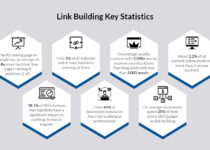The Psychology Behind Free, Promo, and Discount: How Words Shape Consumer Behavior
In the digital age, where competition is fierce and consumer attention spans are short, the words we choose carry significant weight. Among the most powerful terms in marketing are free, promo, and discount. These words are more than just sales tactics; they are psychological triggers that can influence decision-making, shape perception, and even create a sense of urgency.
This article delves into how these specific words interact with the human psyche and why they are so effective in driving customer behavior.
The Power of “Free”: Zero Cost, Maximum Impact
There is something almost magical about the word free. It removes the barrier of cost and instantly elevates the perceived value of a product or service. But why does this happen?
Behavioral economist Dan Ariely popularized the concept of the “zero price effect”, where people overvalue things that are offered at no cost, even when the rational value might be low. In his experiment, participants were given the option to buy a luxury chocolate for 15 cents or a basic chocolate for 1 cent. Most chose the luxury one. However, when the price was lowered by one cent each (making the basic chocolate free), almost everyone chose the free one.
This demonstrates that free does not just remove financial cost; it removes the risk. People are more willing to try something new, take a chance, or make an impulsive decision when it involves no immediate cost. For brands, offering a free trial, free sample, or free consultation can significantly increase engagement and trust.
Promo and the Allure of Exclusivity
Unlike free, which appeals to the avoidance of loss, the word promo taps into exclusivity and urgency. A promotion implies a limited-time opportunity, something special, something not available to everyone.
This ties closely to the psychological principle of scarcity. When people believe that a product, offer, or opportunity is only available for a short time or to a limited group, its perceived value increases. The word promo signals a temporary benefit, prompting faster decision-making and reduced hesitation.
Promotions also evoke curiosity. What is included in the promo? How long will it last? What do I need to do to access it? These questions trigger cognitive engagement, which in turn keeps the consumer interested longer.
Discount: The Rational Justifier
While free and promo appeal to emotion and urgency, discount speaks to logic. A discount tells customers they are getting more value for less money. It helps them justify purchases they might otherwise delay or avoid altogether.
However, not all discounts are created equal. A price reduction must feel significant enough to be meaningful. For instance, a 5 percent discount might go unnoticed, while a 25 percent cut can dramatically change buying behavior.
There is also the concept of anchoring. When customers see the original price next to the discounted one, their minds anchor to the higher number and perceive the new price as a bargain. This tactic plays with the cognitive bias that our brains rely on the first piece of information (the anchor) when making judgments.
The Emotional Logic of Language
What connects all these words is the emotional logic they awaken. Each term operates in a slightly different psychological space:
- Free appeals to curiosity and removes fear of loss.
- Promo creates urgency and a fear of missing out.
- Discount appeals to the rational mind and reassures buyers they are making a smart decision.
When marketers combine these words strategically, they create a compelling offer. For example, “Get a Free Gift with Every Purchase — This Week Only” uses all three triggers. It is free, it is a promo, and it implies a limited-time reward.
Ethics and Trust in Language Use
While these words can be powerful, their overuse or misuse can lead to customer fatigue or mistrust. For example, if a product is always on discount, customers may question the original value. If a promo is extended multiple times, the sense of urgency evaporates.
Smart marketers understand that authenticity matters. Words should align with actual value, real savings, and genuine offers. Psychological influence works best when it builds trust rather than manipulates behavior.
Final Thoughts
Words like free, promo, and discount are more than marketing tools. They are entry points into the complex decision-making processes of the human mind. When used thoughtfully and ethically, they can not only increase conversions but also enhance customer satisfaction and brand loyalty.
Understanding the psychology behind these words can help marketers craft more effective campaigns. But more importantly, it reminds us that language is not just a medium for information. It is a trigger for emotion, logic, and ultimately, action.


